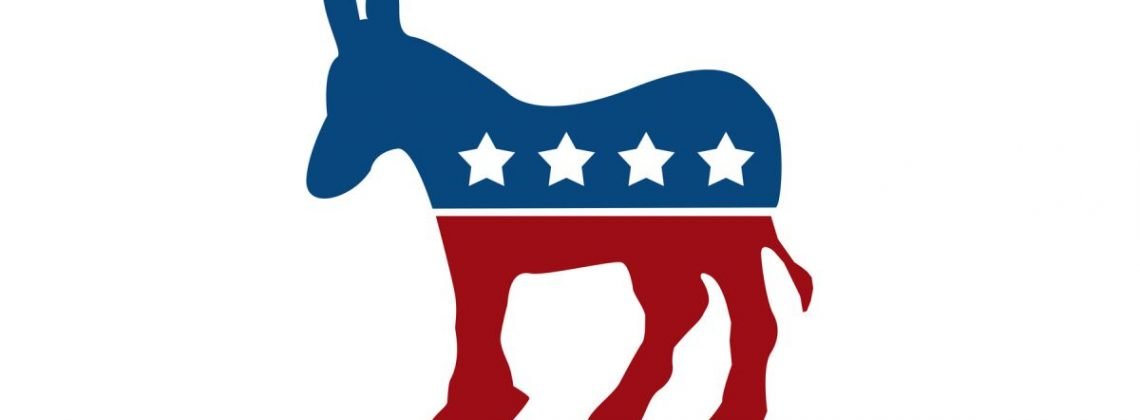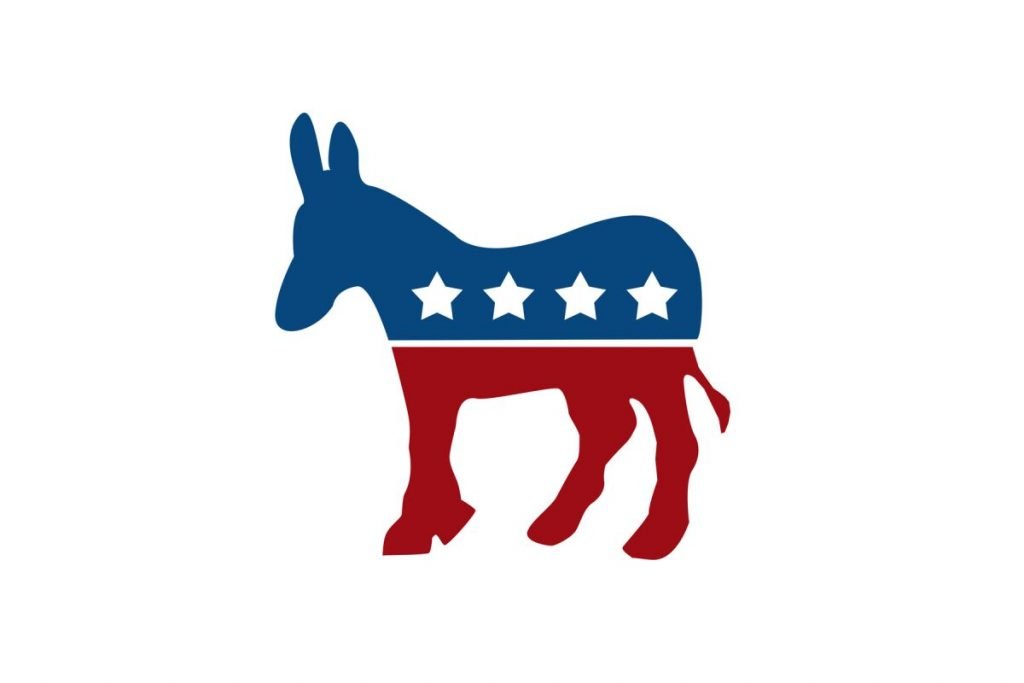

Cornell historian Lawrence Glickman explains in a piece at Slate:
So, what is the history of this strange locution? Tracking the origins of the missing “ic” provides an instructive window into the evolution of modern conservatism. For although “Democrat party” has been employed for at least seven decades, it has been a shifting signifier. Tracing the history of the phrase helps us understand how the Republican Party has defined itself by what it was not. The phrase has always been about “othering” the Democratic Party, but the meaning of the slur has shifted significantly in politically telling ways.
This “ic”-y history begins in 1946, when its key popularizer, the improbably named Brazilla Carroll Reece, a veteran Tennessee congressman, was selected as chair of the Republican National Committee. Reece did not coin the term; “Democrat party” had been used by headline writers and politicians of both parties since the 19th century. Before 1946, however, the phrase did not have a straightforward connotation; it was sometimes used neutrally, sometimes positively, and sometimes negatively.
Reece blazed the trail for the “Democrat party” or, equally frequently, the “so-called Democrat party” to become an insult. Journalists noted his characteristic use of the phrase. It was the “‘Democrat party,’ as he calls it,” wrote Ted Lewis in 1947.
Reece did not, however, offer this renaming out of thin air. He built on two key Republican claims of the previous decade, both arising in opposition to Franklin D. Roosevelt’s New Deal. The first was that, under FDR, the Democratic Party had dangerously radicalized. Frank Knox, the 1936 Republican vice presidential candidate, in a typical version of the critique, said the party had been “seized by alien and un-American elements.” The second claim was that the Democratic Party had lost touch with small-government traditions. “This administration … has lost all relationship to the Democratic party,” Knox said, to the point where “it no longer uses the word ‘Democratic.’ ” (This doesn’t seem to be true—the 1940 and 1944 Democratic Party platforms use the “ic” multiple times.)
In 1940, the Republican presidential candidate, Wendell Willkie, occasionally spoke of the “Democrat party,” but he did not do so regularly; nor did he use always the term in a derogatory way. In 1944, in the midst of World War II, when Republicans stepped up their criticism of FDR for ceding the party to the left—the slogan “Clear it with Sidney” suggested that Roosevelt had allowed labor leader Sidney Hillman to determine party policy—the GOP again did not use “Democrat party” in a consistently critical fashion. Indeed, critics of the progressive wing of the Democratic Party often used the shortened name in a positive way, as a symbol of the restoration of the pre–New Deal party. This initial lack of coherence around the term’s meaning shows why the definitional work that Reece did was necessary.
In the immediate post–World War II moment, Reece expanded the anti–New Deal argument that the Democratic Party “no longer is the historic Democratic party.” In the context of the nascent Cold War, he did so more systematically, using the phrase “Democrat party” to signal that the party was not just no longer itself, but outside of the American mainstream and potentially subversive. “The radicals who have stolen the Democrat party,” he charged, act as if they are “working for Moscow.”
In using the wrong name for the Democratic Party, a label that Democrats came to despise, Reece pioneered a tactic whose primary goal is to demean, upset, and annoy political opponents. The reporter Earl Mazo described the “phrasemaker” Reece as drawing applause at the 1948 Convention “when he ripped into what he calls the ‘Democrat party’ with lacerating wordage.” As with others, like Sen. Joe McCarthy, who followed in his footsteps, Reece’s main point, commentators noted, appeared to be humiliation. “Nothing seems to annoy a Democrat more than to have his Democratic party called the ‘Democrat’ party,” wrote Fletcher Knebel in 1955. “On the other hand, nothing seems to give the Republicans more pleasure than to shear this last syllable off the name of their adversaries.”
Read the entire piece.
It does annoy me. I can think of lots of ugly names for the Republican Party. But I never hear elected Democrats use them. Online commenters love to say stuff like “we’re NOT a democracy we’re a republic” and “Democracy means MOB RULE “.